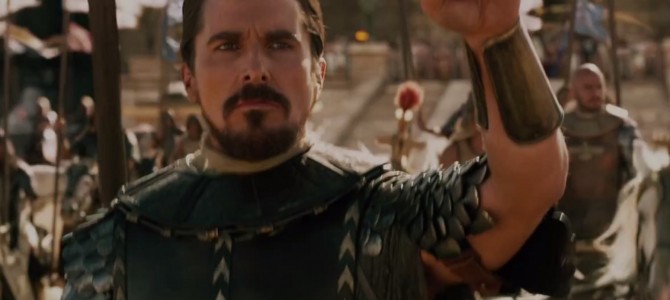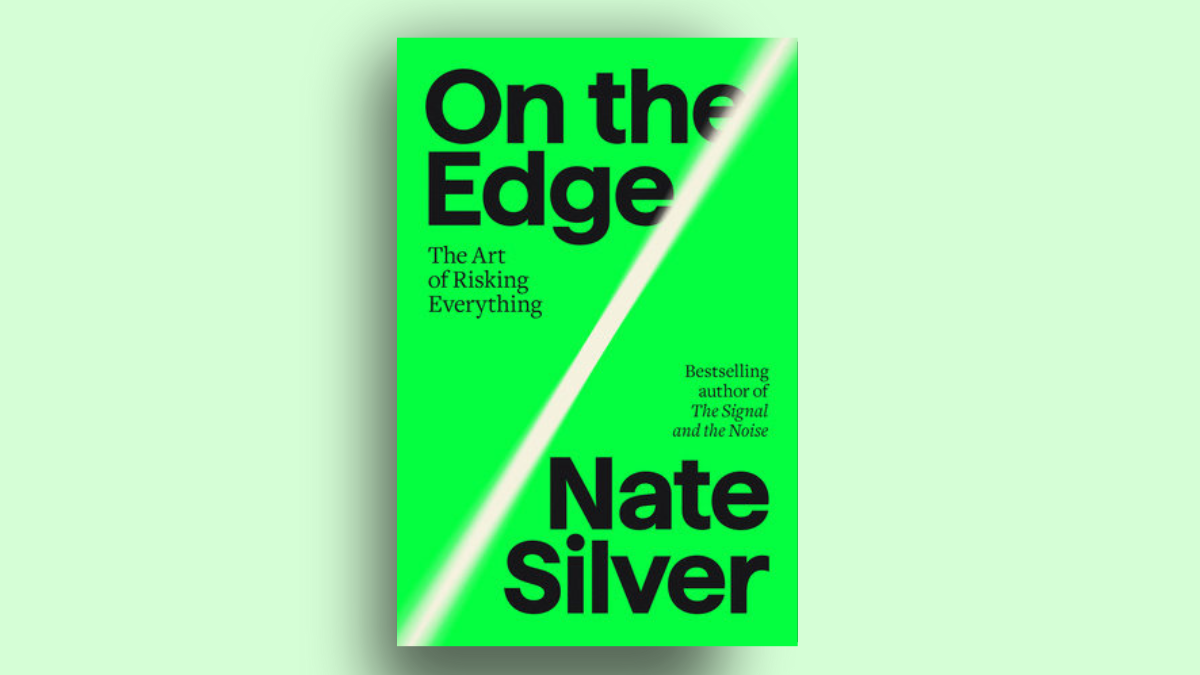
“The ancient man approached God (or even the gods) as the accused person approaches his judge. For the modern man, the roles are quite reversed. He is the judge: God is in the dock.”—C.S. Lewis
Director Ridley Scott acts as lead prosecutor in “Exodus: Gods and Kings,” putting God on trial using one of the Bible’s most famous stories. The accused stands charged with capriciousness, meanness, petty jealousy, and simply being an all-around jerk.
The film follows only the bare outlines of the Biblical story. An anachronistic title character leads the film, a modern skeptic scoffing at superstition plunked down in the Nile valley. Moses (Christian Bale) believes himself the Egyptian cousin to the future Pharaoh Ramses (Joel Edgerton). When Ramses ascends to the throne, he drives Moses away. Turns out, Moses is not Egyptian at all, but was adopted by a princess, and is truly the son of a lowly Hebrew slave.
Fleeing into the wilderness, Moses meets a local girl (Maria Valverde), marries, and settles into a life of sheepherding. But one day—wouldn’t you know?—he gets knocked on the head. He sees first a burning bush, then a small, angry boy who chides him about his lack of concern for his suffering people. Moses is to return to Egypt and free his people, by force if necessary. Tellingly, Moses carries a sword, never a staff.
Moses grudgingly obeys this petulant deity. He confronts his would-be cousin Ramses, but there’s a much more sinister force at work. Soon plagues start afflicting the people of Egypt, down to the precious son in Ramses’ castle.
Weak Sauce from Rich Subject Matter
It would be prohibitive to chronicle all the ways the movie changes the Biblical story, and unnecessary. Accuracy was never the point. Even God’s great moment of self-revelation that has launched a thousand M.Div. theses, “I AM THAT I AM” is reduced merely to “I Am,” for no apparent reason.
More importantly, the film changes the tone and ideas of the story. The central conflict is not between Moses and Ramses, but between little-boy-God and Moses. They yell at each other, they snipe, they call each other nasty names and accuse each other of being heartless, uncaring meanies. The only thing they never do is listen to each other. At the end, as Moses chips painstakingly at some stone tablets, little-boy-God wonders that Moses “doesn’t agree with” Him, but sticks around. Moses concedes that he “doesn’t agree with” little-boy-God, but at least they’re still talking.
It’s a fair point about wrestling with God, as far as it goes, but it’s weak sauce from such rich subject matter. The Egyptian setting seems lifted whole cloth from Cecile B. Mille’s “The Ten Commandments,” with better special effects. You can tell Ramses is Egyptian because he sports linen robes, a bald head, and heavy eye makeup. Moses, even though he thinks he’s Egyptian, insists on wearing furs and coarse cloth like a peasant. Plus, even though hair care products have clearly been invented—his wife’s hair is lovely—he refuses to so much as run a comb through his stringy Hebrew locks. So it goes, using old tropes instead of reinventing: a dissipated, vampish governor is straight out of “Caligula,” an Egyptian priestess could be from “The Mummy.”
Little Sympathy With or Depiction of Ancient Cultures
It’s just one symptom of Scott’s complete lack of interest in the ancient setting. Another is the dearth of dark-skinned Africans in this film set in Africa. It’s odd there are no people in Africa who look like they could actually be from Africa, except slaves or servants. As an added twist, Scott did an excellent job casting Middle-Eastern looking women as wives to Moses and Ramses, the only casting that seems intentional.
Great actors—Ben Kingsley, Sigourney Weaver, Aaron Paul—are wasted in nothing but supporting roles. Some characters, like Moses’s sister Miriam, disappear without a trace. Action scenes are big and epic, but chaotic. Rated PG-13, the film has some disturbing and violent subject matter, but no language or sexuality.
Egyptian religion and culture, with its Book of the Dead, vast temples, and well-heeled mummies, is reduced to nothing. It could have been so much more. To the people living at that time, the idea that Ramses was a god would have been a ridiculously obvious fact. The pyramids were already 1,500 years old at the time of Ramses. (Whether the Hebrews existed in Egypt at all, and if they left at the time of Ramses the Great are sources of great scholarly debate. Tradition links Exodus with Ramses.) The pharaoh-god controlled the forces of chaos. He made the Nile flow, the sun rise and set, the crops grow. To challenge that would be more than audacious. It would be madness. That a small, weak tribe of slaves was challenging it would have been unthinkable. But no new territory is explored in this rich area.
‘Exodus’ Refuses to Consider the Real Story’s Central Questions
Instead, the central question is the modern bewilderment of why God creates and allows pain for innocent Egyptians. The heartbreaking aspects of the plagues are clearly portrayed, especially when God takes the firstborn of each family. At points, the film sides with the Egyptians. Moses, apparently more moral than God, takes exception to this indiscriminating death.
It’s a valid question, and one that has been talked about for centuries by the faithful and skeptical alike, but the movie never comes to a point past accusatory. The problem of pain is merely a beginning of the conversation, not final word.
Ultimately, though, what makes the movie fatally flawed is that it fails to capture the emotion of the story. There’s a reason why African-American slaves named their babies Moses, why Martin Luther King Jr. evoked Moses in his most famous speeches, why Jews to this day celebrate Passover—the story of their deliverance from Egypt—as one of the most important points of memory, and why Christians consider Moses a foreshadowing of Christ.
It’s the hope of the oppressed, enslaved, mistreated, and downtrodden that God knows, God sees, God cares, and God will deliver. The very essence of faith—that God is good and just and somehow present—is no less relevant in the age of Islamic State murders and Ebola than it was when Moses first lifted his staff. The movie that captures that desperate, audacious hope, even with the shadow of doubt—especially with the shadow of doubt—is the movie that will see “The Passion of the Christ” popularity.









